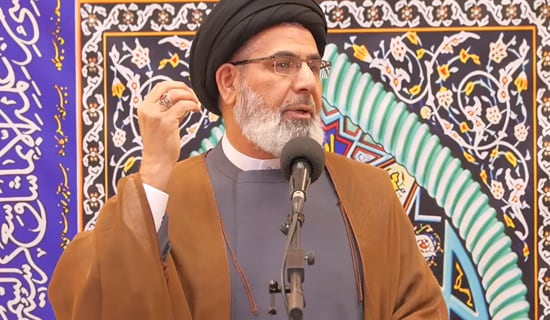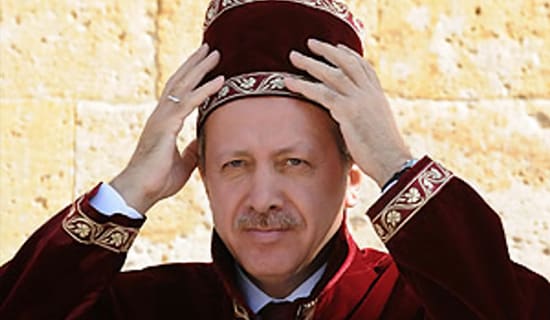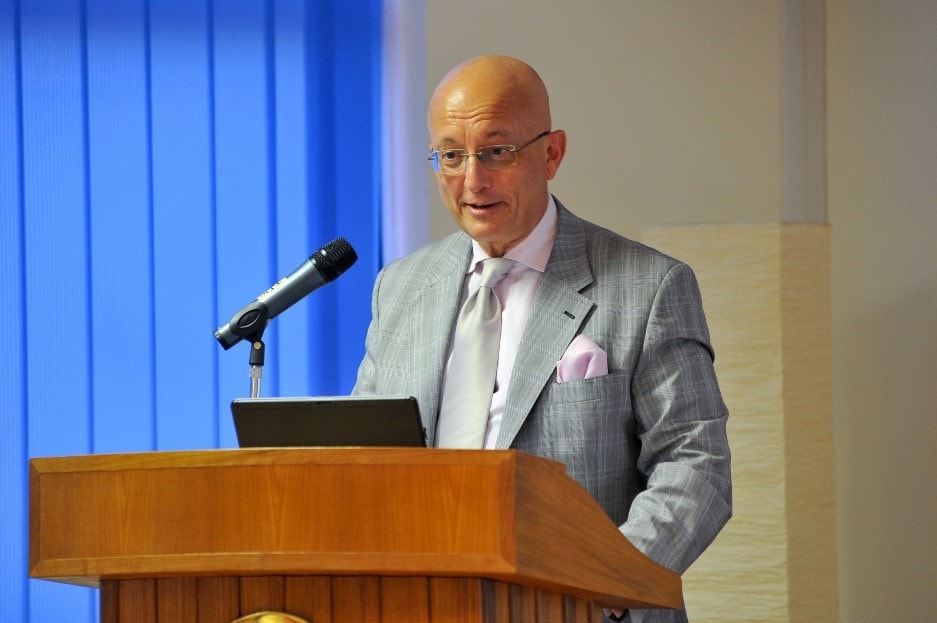In an exclusive conversation with Olga Belova, host of the TV program “The Main”, Russian Deputy Minister of Defense Alexei Krivoruchko spoke of the Russian army's modernization and future challenges.
Krivoruchko stressed that in 2020 the Russian Army must reach a more than 70% level of modernity. The most important field of development is the nuclear triad. “We will continue to rearm our army with ‘RS-24 Yars’,” he said. The Navy's development would continue and “the Navy will probably receive the biggest impetus, precisely in the part of the ships of the long-range maritime zone,” Krivoruchko stated.
Below is the interview with Russian Deputy Minister of Defense Alexei Krivoruchko:[1]

Alexei Krivoruchko (Source: Ria.ru)
Krivoruchko: The Challenges Of 2020 Are Difficult. We Must Reach A Level Of Modernity Surpassing 70%
Q: “...[Alexei Yuryevich] how do you assess the year 2019 in terms of defense contracts. Did everything desired and planned get fulfilled? For example, did some difficulties arise? Did you have to involve the Ministry of Defense at some point?”
Krivoruchko: “Of course there were difficulties, they remain and will always be. One can also say that the 2019 state defense orders were fulfilled by more than 99%. All the main tasks that awaited the Ministry of aDefense and industry are fully completed. And this allowed us to bring the level of modernity in the Armed Forces to ... more than 68%. Therefore, we can say with confidence that the tasks assigned to the Armed Forces have been completed.”
Q: “Are there any areas which you are particularly proud of? I know that this year there were many premieres in the field of aviation, for example the new drones were presented. Does the future lie with them?”
Krivoruchko: “Of course, both the future and the present. This is a major focus [of our work]. We have several such projects. Already some hardware and some prototypes have been adopted. As for heavier machinery, these projects are ongoing, but in the near future they will be adopted by the army. The tests are in ‘full swing’.”
Q: “Will there be any premieres in the 2020? I understand that there is a question of military secrecy, but nonetheless. Maybe something will turn up on May 9 [Moscow Victory Day Parade]?”
Krivoruchko: “Indeed, There is a discussion concerning several models of equipment that we have not yet shown. Some of them are going to be shown at the Parade.”
Q: “What is expected in the sphere of defense industry in the next year? Are there any areas you want to focus on specifically?”
Krivoruchko: “The challenges of 2020 are also difficult. We must reach the level of modernity surpassing 70%. This goal was reflected in the President’s May decrees. I have no doubt that we will achieve these indicators. As for some of the most important areas, it is hard to highlight something. ... I would like to note first everything that concerns our nuclear triad. We will also continue rearmament. We have the highest rate of modernity here. ... We will continue to rearm our army with ‘RS-24 Yars’. ... One of the most significant news, which will await us in the year 2020 is the development of the Navy. We will continue to build, and we will lay [the keel] for eight additional ships. Also, additional contracts will be signed at the ‘Army of Russia’ forum. Therefore, probably, the Navy will receive the biggest impetus, precisely in the part of the ships of the long-range maritime zone.”
Q: “And as for hypersonic and laser weapons? Usually they give us only hints about them. Is it correct thing to say that the one who will have hypersonic weapons and laser weapons will control the world?”
Krivoruchko: “Indeed, these are the areas of the highest priority in all the armies of the modern world. If we start with laser weapons, we already (as the president and the defense minister said) have such weapons in service. I’m talking about the ‘Peresvet’ complexes. But this is not the only system that we are developing, which will soon go into service. I must say that this is one of the highest priority areas. And all the works are in a full swing. And, I think, in the near future we will show something.”
Q: “Speaking of the nuclear triad and, for example, hyper sound or laser weapons. What R&D [projects] are in the spotlight? …”
Krivoruchko: “All this is important and requires efforts, one might say the same amount of it. As for nuclear weapons, this is certainly a priority. Here, everything goes smoothly. Laser weapons are also an important area. Hypersound - as you already know, we are here at the forefront. Complexes such as the ‘Dagger’ are already in service. ‘Zircon’ is already in service with the Armed Forces then, in the near future, the tests will all be completed...”
Q: “Does the foreign policy situation or, so to speak, a general unstable situation, and global tension do they affect somehow the state defense order, or not?”
Krivoruchko: “Of course, we are following this issue closely. And there were attempts, including sanctions, to influence it [state defense order]. That is no secret, literally 5-7 years ago a lot of foreign equipment and components were used in our armament (engines, component base). Today there are no such problems. The import substitution process has been fully completed. We do not have a single supply disruption due to import substitution, therefore, they [sanctions] have no effect on [state defense order] today. But, of course, there were such attempts. Precisely for that sanctions were imposed against the military-industrial complex. Our industry dealt with them, and in the process was able to gain new expertise, new areas [of competency]. …”
Q: “There used to be an expression: ‘whatever the Russians try to make, they end up with ‘Kalashnikov”. In your opinion, now how can this be rephrased considering the current development level of the domestic defense complex?”
Krivoruchko: “You can definitely say ... that all the equipment that goes to the Armed Forces is modern technology. This is true for all types of troops: the technology of the REP troops, aviation, the navy, land equipment. All weapons are not only at the level of the analogs of other countries, but are well superior to them. And this is also not a secret: the operation in Syria showed it. It is therefore quite clear: We have modern, complex and efficient systems. [They are] significantly cheaper than other countries' models. …”
[1] Tvzvezda.ru, December 29, 2019




